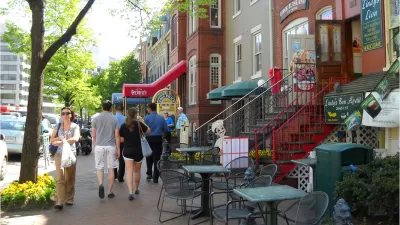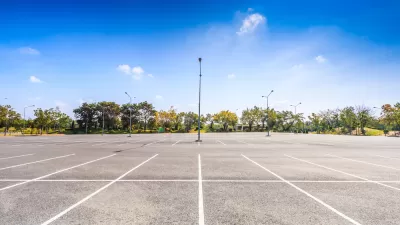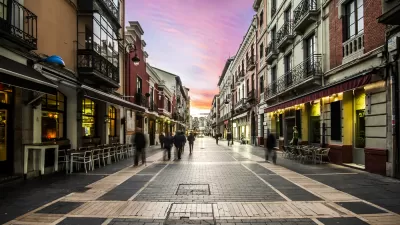Walkable areas are more prosperous in cities all around the country, a report from Foot Traffic Ahead concludes.

Walkable areas are more prosperous than non-walkable areas in cities, according to the "Foot Traffic Ahead," report. The connection between density and prosperity might not be a surprise, but the extent of the connection might be surprising. "It’s not a trend confined to coastal cities; it’s on the rise in the Rust Belt, the Sun Belt, tech metropolises, government centers, innovation centers, and millennial magnets,” Patrick Sisson reports for Curbed.
Denser more walkable neighborhoods are continuing to become yet more dense and represent a larger share of the city’s wealth. "In Dallas, a poster child for sprawl, the 38 WalkUPs comprise 0.10 percent of metro land area, but 12 percent of metro GDP," Sisson writes.
Low-density areas with segregated building types lack the flexibility that denser areas have, the report argues, giving more walkable areas an advantage.
FULL STORY: Why building walkable cities is the key to economic success

Planetizen Federal Action Tracker
A weekly monitor of how Trump’s orders and actions are impacting planners and planning in America.

Chicago’s Ghost Rails
Just beneath the surface of the modern city lie the remnants of its expansive early 20th-century streetcar system.

San Antonio and Austin are Fusing Into one Massive Megaregion
The region spanning the two central Texas cities is growing fast, posing challenges for local infrastructure and water supplies.

Since Zion's Shuttles Went Electric “The Smog is Gone”
Visitors to Zion National Park can enjoy the canyon via the nation’s first fully electric park shuttle system.

Trump Distributing DOT Safety Funds at 1/10 Rate of Biden
Funds for Safe Streets and other transportation safety and equity programs are being held up by administrative reviews and conflicts with the Trump administration’s priorities.

German Cities Subsidize Taxis for Women Amid Wave of Violence
Free or low-cost taxi rides can help women navigate cities more safely, but critics say the programs don't address the root causes of violence against women.
Urban Design for Planners 1: Software Tools
This six-course series explores essential urban design concepts using open source software and equips planners with the tools they need to participate fully in the urban design process.
Planning for Universal Design
Learn the tools for implementing Universal Design in planning regulations.
planning NEXT
Appalachian Highlands Housing Partners
Mpact (founded as Rail~Volution)
City of Camden Redevelopment Agency
City of Astoria
City of Portland
City of Laramie





























